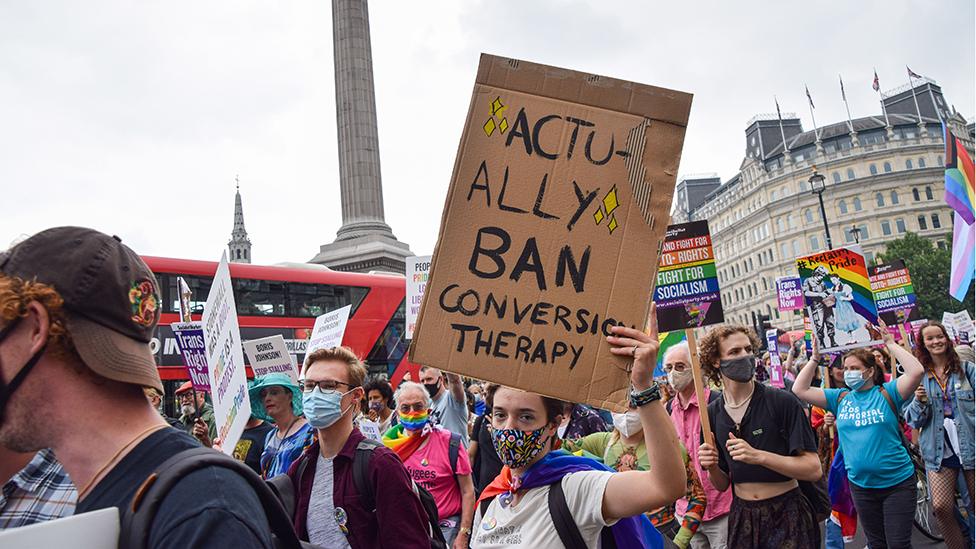Scotland seeks opinions on conversion therapy laws
- Published
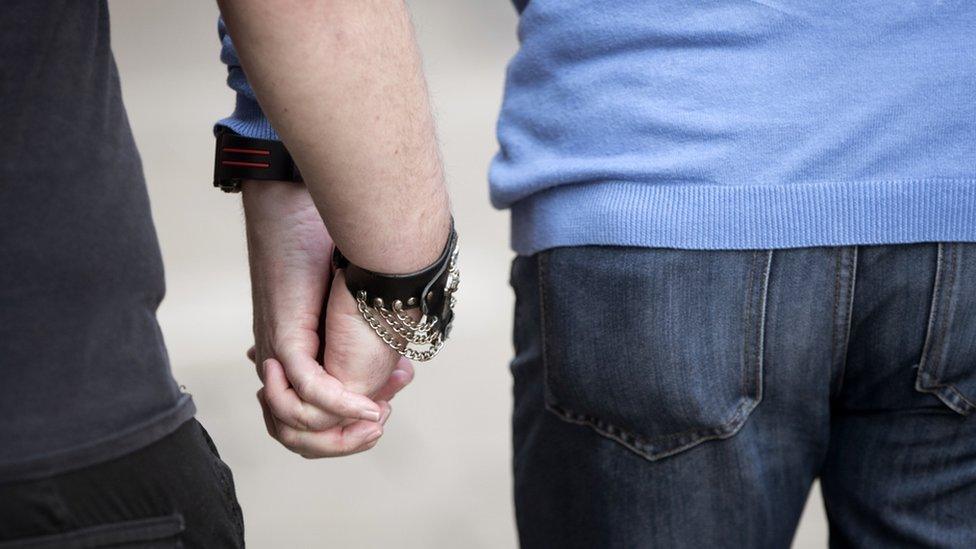
A public consultation is under way on planned laws to ban conversion therapy for sexuality or gender in Scotland.
Equalities Minister Emma Roddick said conversion practices "have absolutely no place in Scotland".
The proposed ban has raised concerns from those who fear attempts to counsel people struggling with their identity could be seen as conversion therapy.
Conversion therapy refers to practices "aiming to change or supress a person's sexual orientation or gender identity".
A 86-page proposal document was released alongside the online consultation, external, which closes on 2 April.
The Scottish government wants to "lead the way" on a ban after the UK government left it out of the King's Speech in November, five years after first promising it.
This followed disagreements about what form a ban should take, whether it should include talking therapies for people questioning their gender and concerns over its impact on freedom of expression and religious freedoms.
During a visit to LGBT Health and Wellbeing in Edinburgh, Ms Roddick told BBC Scotland News the ban would apply to "so-called therapy services" or "coercive behaviour" that tried to change someone's sexuality or the gender they identified as.
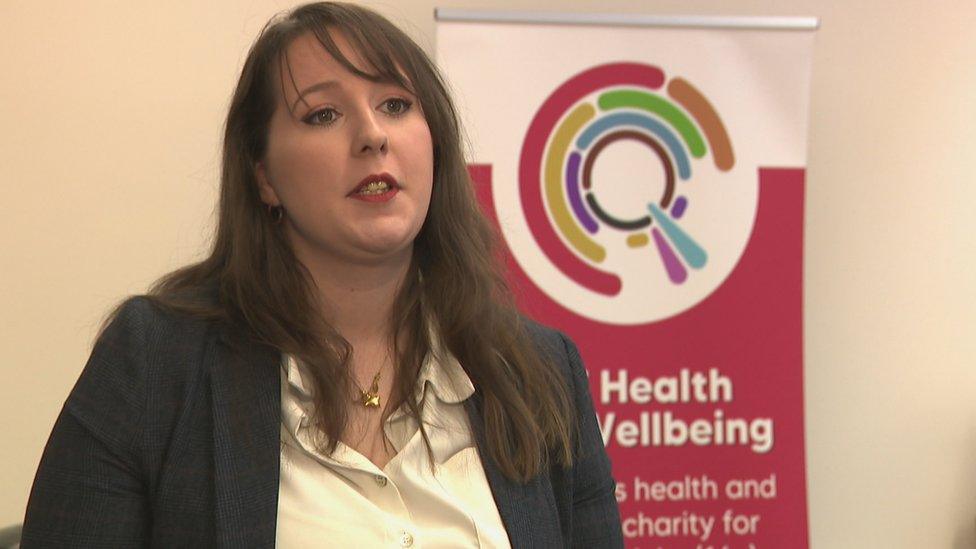
Equalities Minister Emma Roddick said parents would only be criminalised if they caused harm to their child
She also insisted that the right to a family life and religious beliefs would be protected.
And Ms Roddick added that an individual's actions would only qualify as a conversion practice if it was done with intent and caused "actual harm" to a victim.
The minister said conversion practices were "damaging and destructive acts that violate people's human rights" and Scotland was leading the way in the UK to ban them.
"Sadly, these practices still happen today and they have absolutely no place in Scotland," she said.
Ms Roddick added that a parent would only be criminalised if they caused harm to their child who was coming out as gay or transgender.
She said: "The consultation responses we receive will help us to further consider those measures we can take to stop the harm of conversion practices and protect those at risk while ensuring that freedoms - including freedoms of speech, religion, and belief - are safeguarded."
However, concerns have been raised about the scope of the proposed laws and the lack of clear definitions in the legislation.
The LGB Alliance, a charity supporting lesbian, gay and bisexual rights, said they were concerned that new laws on gender identity could outlaw any response to a child questioning their gender "other than affirmation of their self-diagnosis".
Scottish trustee Rhona Hotchkiss, a former women's prison governor, said: "We know that the majority of unhappy children presenting at gender clinics describe themselves as same-sex attracted.
"The affirmation-at-all-costs approach hurts confused young people - most of whom would grow up to be happily lesbian, gay of bisexual if left alone by the gender industry."
She added: "'Transing away the gay' is the real conversion therapy."
Ms Hotchkiss also questioned why the consultation document used the term LGBTQI+ throughout because same-sex attracted people had their own needs and were disadvantaged when "force-teamed" in campaigns by TQ+ lobbyists.
A Scottish government spokesman said no-one should be coerced to change or suppress their sexual orientation or gender identity, "whether this is to change them from gay to straight; transgender to cisgender, or vice versa".
However, medical treatments by a healthcare professional relating to a person's gender identity would not be considered a conversion practice, external.
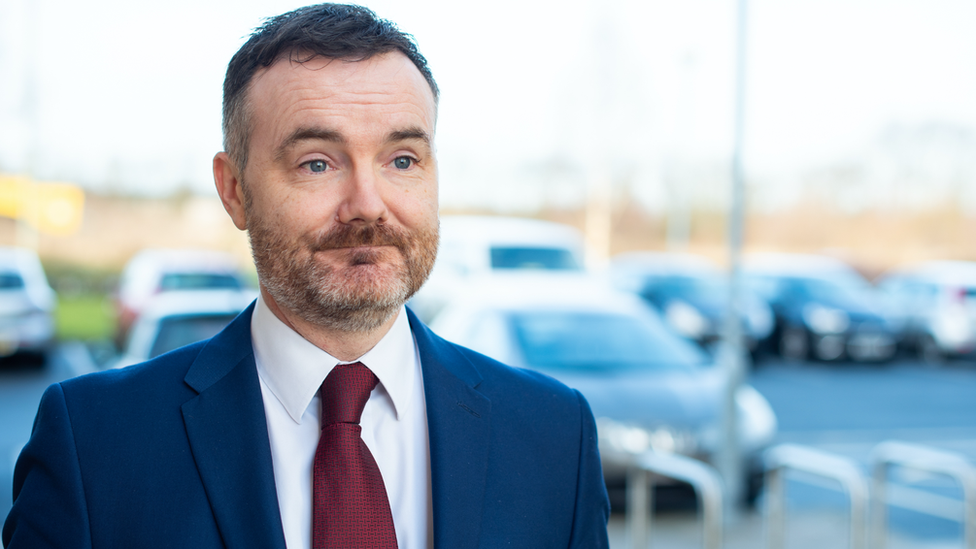
Simon Calvert said they would take the Scottish government to court if the law threatened free speech or criminalised parents and church leaders
The Christian Institute, which opposed Holyrood's failed "named person" guardian scheme, said they would take the Scottish government to court if a new law threatened free speech or criminalised parents and church leaders.
Deputy director Simon Calvert said: "We are particularly worried about the government's plans for 'civil protection orders'.
"The courts could impose draconian limits on the free speech of individuals based purely on activists' speculation about what they might say to gay or trans people," he said. "Our solicitors wrote to the government preparing the ground for judicial review in February 2022."
Mr Calvert added: "Gay and trans people are already protected, quite rightly, from verbal and physical abuse by existing law."
The Catholic Church in Scotland said it supported laws protecting people from physical and verbal abuse, but religious bodies and organisations needed to be free to support members who wish to live in accordance with their beliefs.
Peter Kearney, from the Scottish Catholic Media Office, said there was a "worrying lack of clarity about what is meant by the term conversion practices" and warned that new legislation "could create a chilling effect and may criminalise advice or opinion given in good faith".
"We would urge the Scottish government, not to criminalise mainstream religious pastoral care, parental guidance, and medical or other professional intervention relating to sexual orientation, which is not approved by the State as acceptable," he said.
Situations that could be covered by the proposed legislation, if carried out with the intention to change or suppress a person's sexual orientation or gender identity and which cause that person harm, include:
therapy or counselling that requires a person to change or suppress their same-sex attraction
prescribing medication to suppress a person's sex drive
repeatedly or continuously controlling a person's activities and appearance
repeatedly or continuously threatening or humiliating someone.
A new criminal offences of engaging in conversion practice would be created, including both providing a service and engaging in a course of coercive behaviour - as well as taking a person out of Scotland to engage in conversion practices.
Prosecutors would have to prove anyone engaging in conversion practices intended to change a person's sexual orientation or gender identity and that the practices or services caused physical or psychological harm to the victim.
The document said those accused would have a defence if their actions could be proven to be "reasonable in the particular circumstances".
While the Scottish government has no statistics on the number of people subjected to conversion practices or groups using these methods, it pointed to UK government's 2017 online National LGBT Survey, which found that of 108,000 self-selecting LGBTI respondents, 2.4% had received "conversion" or "reparative" therapy to cure them of being gay.
The consultation documents said it was harder to obtain information because conversion practices "often happen in religious, community and family setting, external" and "many LGBTQI+ people in the UK have roots in other countries where conversion practices and other psychological therapeutic practices are the norm".
Mark Kelvin, chief executive of LGBT Health and Wellbeing - which has been offering support to people in Scotland for two decades, said: "Whilst we'd like to think that [conversion practices] are a thing of the past, or not happening in Scotland, we know that some LGBTQ+ people in Scotland are still being subjected to these abhorrent practices and we welcome the Scottish government's leadership and action on this issue."
Related topics
- Published7 November 2023
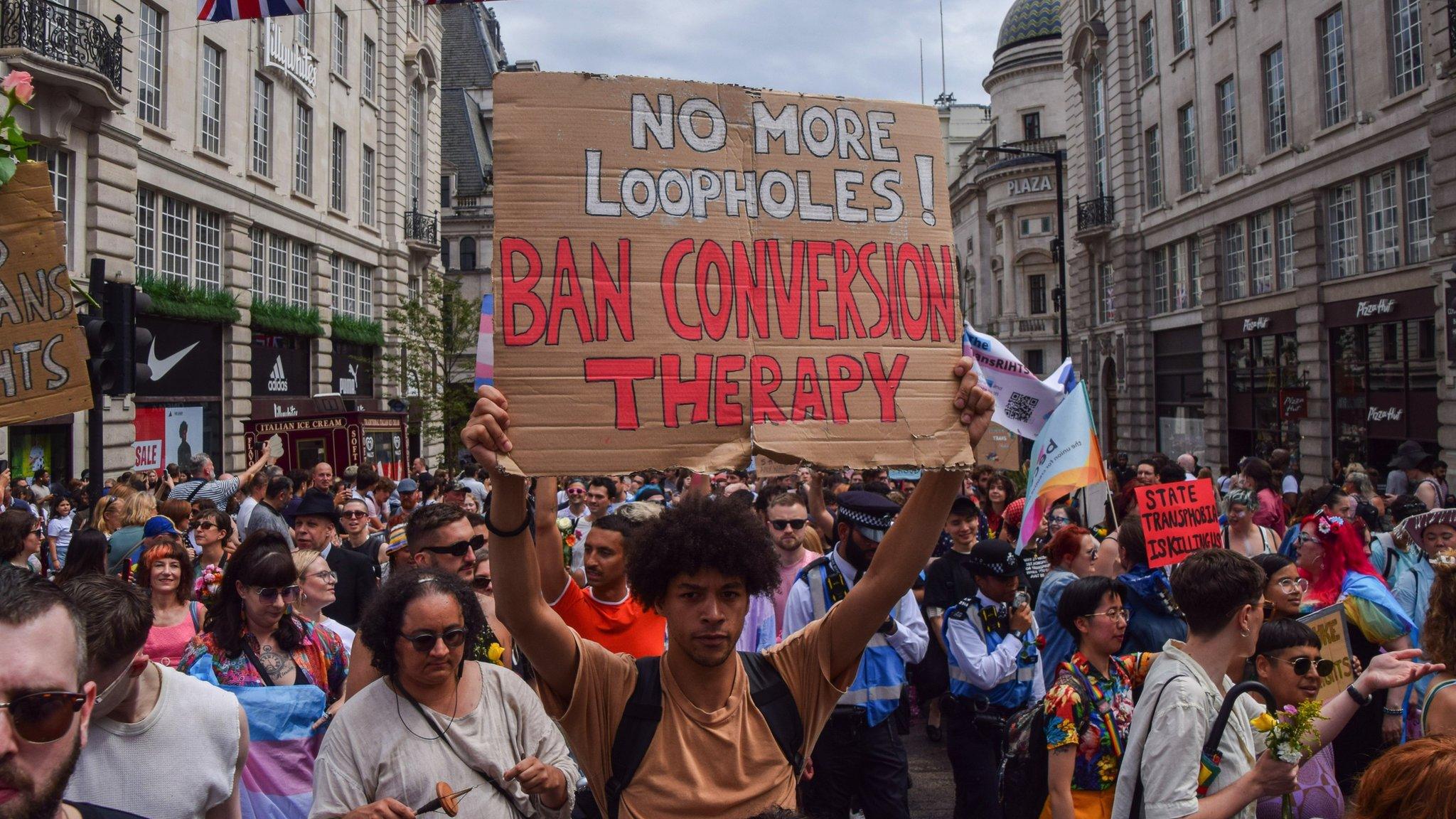
- Published18 November 2021
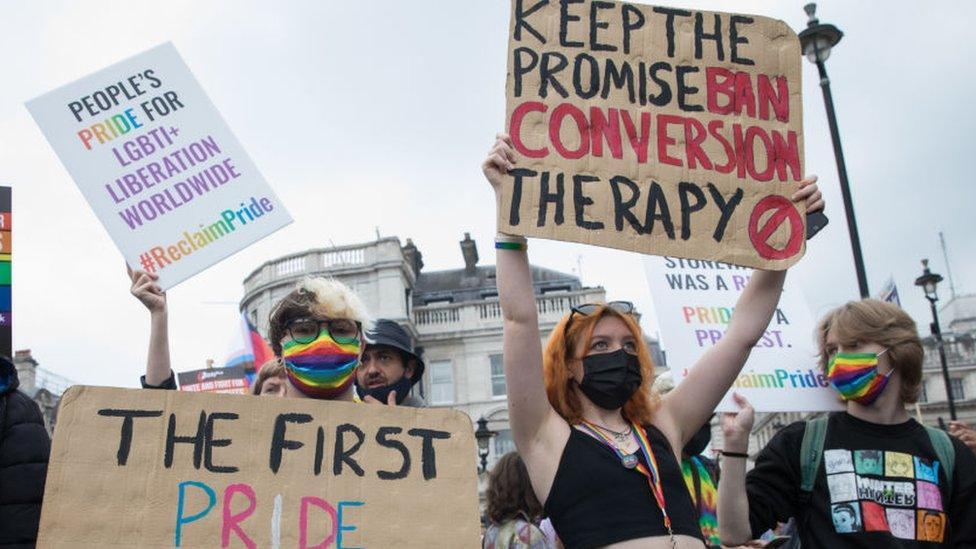
- Published20 September 2024
